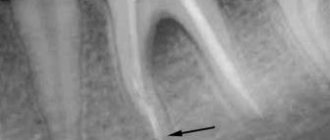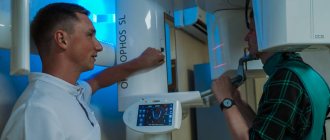There is fierce debate surrounding coronavirus vaccinations. Opponents say that it leads to infertility and other irreversible health changes. Let's figure out how things really are.
After an illness, a natural but short-term immunity to the virus is formed, but at the same time there is a risk of having a serious infection again, getting complications and infecting loved ones.
The vaccine is a safer way to protect yourself from COVID-19. Vaccination forms more stable immunity to the virus, reduces the risks of severe disease and the spread of infection from person to person.
Sputnik V is a vector vaccine. For precise delivery of the virus, another virus from the adenovirus family is used as transport. Their genome has been well studied, and the methodology for developing vaccines based on it has long been developed. With the help of genetic engineering, the adenovirus is deprived of the ability to reproduce, and part of the coronavirus is integrated into it. Once in the body, this part is recognized and remembered by the immune system. This allows you to get protection without infection and risks of coronavirus infection. But this method has one drawback.
If a person has already had an adenovirus, then when they encounter it, the immune system can immediately destroy it, and the vaccine will not work. To prevent this from happening, the developers of GamCovidVac (another name for Sputnik V) used two types of adenovirus. First, a vaccine based on the rarer type 26 adenovirus is administered; the second time, another member of the family is used. This method not only increases the effectiveness of vaccination, but also increases the duration of the body's immune defense.
Why do adverse events occur after coronavirus vaccination?
The vaccine familiarizes the immune system with the virus, and an immune response is launched in response to foreign interference.
A local reaction occurs - in response to damage to the skin and the introduction of the vaccine, cells of the first line of defense rush there. They must prevent the spread of infection that has been able to overcome the skin barrier. This is manifested by swelling and redness at the injection site.
The vaccine then enters the bloodstream. This forces the immune system to react to a possible threat and triggers defense mechanisms. Antibodies are produced to remember and destroy the invading virus. In addition, the body seeks to weaken the enemy and prevent the virus from multiplying quickly while the antibodies look for a way to destroy the enemy. One way is to heat the body, since many viruses cannot tolerate high ambient temperatures.
All together this can cause a typical reaction: fever, muscle weakness, headache. How severe the adverse events will be depends not so much on the vaccine, but on the individual characteristics of the body. After all, one person tolerates the same infection calmly, while another with a temperature of under forty. Most patients do not experience any reactions after vaccination.
What adverse events can the Sputnik V vaccine cause (GamCovidVac)
15-20% of vaccinated people experience a flu-like syndrome (headache or muscle pain, malaise) or pain at the injection site. Serious adverse events following GamCovidVac vaccination are rare. 0.001% had a severe anaphylactic reaction. This is one person per hundred thousand vaccinated.
Vaccination has been going on at GMS Clinic since January 2022; more than 5 thousand people have been vaccinated; adverse events were observed in less than 15%. More often observed: rise in body temperature, pain at the injection site, rise in blood pressure. Most of these events were not considered serious, so patients were able to successfully receive the second component of the vaccine. Once I had a severe allergic reaction. This patient was not given the second component. The symptoms went away safely, but for further vaccination this patient will most likely be recommended a different drug.
Adverse reactions usually subside within three days after vaccination. Their intensity and duration depend on various factors and indicate the reaction of the immune system. Common and harmless adverse events include:
- temperature (if it does not cause discomfort, you don’t have to take anything);
- muscle pain;
- weakness;
- headache;
- local reaction: redness and swelling at the injection site.
Adverse events such as increased body temperature or local manifestations at the injection site usually disappear after a maximum of three days. If side effects are very bothersome, you can take a non-steroidal anti-inflammatory drug (NSAID), such as paracetamol or ibuprofen. You can apply a cool compress to the injection site.
Any medicine, including vaccines, can cause allergic reactions. Not a single manufacturer, unless he is a charlatan, will forget to indicate the possibility of an allergic reaction in the instructions for use of the drug. Also, any food product, any molecule heavier than salt, can cause an allergic reaction. If you suspect an allergy, you should consult a doctor.
Comments
I drink citramon in case of headaches and toothaches, because... It is always at hand, but after it my stomach always starts to hurt badly. And when I ask the pharmacy what to replace it with, they always prescribe very expensive medications. Maybe you can tell me what to do?
Alina (03/02/2019 at 15:06) Reply to comment
- Dear Alina! The stomach may hurt due to a reaction to the aspirin (acetylsalicylic acid) included in Citramon. Never take tablets on an empty stomach, and if, regardless of this, the pain recurs, then try replacing the medicine with Paracetamol in its pure form. It is also advisable to consult a gastroenterologist, because acetylsalicylic acid can provoke peptic ulcers of the stomach and duodenum.
Editorial staff of the portal UltraSmile.ru (03/07/2019 at 11:46 am) Reply to comment
I'm going to take citramon in order to increase my blood pressure, because... My whole head hurts when I lower it. How long does the effect of high blood pressure from these tablets last?
Svetlana Valerievna (03/16/2019 at 18:07) Reply to comment
- Dear Svetlana Valerievna! Everything here is purely individual and depends on the condition of the blood vessels. It is also possible that the medicine has no effect on a person at all and does not raise blood pressure. In addition, Citramon is not the best option for treating hypotension on an ongoing basis, because today there are a large number of safer remedies. Seek advice from a physician who will provide a referral for tests. You may also need to consult a cardiologist and neurologist.
Editorial staff of the portal UltraSmile.ru (03/20/2019 at 09:14) Reply to comment
Write your comment Cancel reply
Undesirable effects of other Russian vaccines
"CoviVac"
This is an inactivated vaccine. That is, a killed coronavirus is delivered to the body. This is an old and proven technology, many vaccines against viral diseases have been made using it: polio, influenza and others. Dead viruses cannot cause disease, but their entry is enough for the body to learn to recognize them. As a result, when a live virus enters from an infected person, a strong immune response is formed immediately.
To enhance the immune response, aluminum hydroxide was added to CoviVac. One dose contains up to 0.5 mg. This dose is much less than permissible.
The instructions for the drug say that the vaccine can rarely cause headaches and short-term fever. Pain and hardness at the injection site are more common.
"EpiVacCorona"
This vaccine differs from Sputnik V and CoviVac in that it is not created using viruses. It is not killed or neutralized virus particles that are introduced into the body, but artificially created proteins. Using them, the immune system is trained to recognize real viruses. This method of creation reduces the reactogenicity of the vaccine, so it is recommended for vaccination in elderly or weakened people.
In a publication in the Russian journal Infection and Immunity, the vaccine developers claim that the only adverse events were mild pain at the injection site. And the CoviVac vaccine does not cause headaches, muscle weakness and other common symptoms.
Which vaccine dose is more difficult to tolerate?
Sputnik is a two-stage vaccine. The first injection of the vaccine causes an unstable immune reaction, and the second dose consolidates the result. This method of administration increases the effectiveness of the vaccine and the duration of the body's protection. The interval between vaccines should be 21 days or slightly more. A deviation of several days (in one direction or another) does not pose a danger.
It is believed that younger and healthier patients respond more strongly to the vaccine, but there is no official data. Adverse effects the second time may be stronger than after the first dose, or they may be weaker. This is a normal reaction and may be associated with another type of adenovirus.
Typically, older people tolerate vaccination better than younger people. The risk of such an undesirable phenomenon as elevated body temperature decreases significantly with age.
Contraindications of Citramon and its side effects
Like any other medicine, it should be used taking into account indications and contraindications.
Citramon is contraindicated for children under 14 years of age
It is contraindicated for use by children under the age of 14 years, because components such as caffeine and aspirin act as an irritant to the nervous system, and acetylsalicylic acid has a pronounced negative effect on the mucous membrane of the digestive tract.
Doctors do not recommend using Citramon:
- Throughout pregnancy
- During breastfeeding
- In cases of impaired renal and liver function
- For bleeding disorders
- In the presence of open-angle glaucoma
When to see a doctor
After vaccination, it is better to wait half an hour rather than leave immediately. This is necessary to make sure there is no allergic reaction. If it becomes difficult to breathe, there is a feeling of a strong heartbeat, tinnitus, rash, dizziness, or swelling of the face begins, you need to contact the vaccination center for medical help.
You should also consult a doctor if after vaccination:
- headache, weakness or fever does not go away within three to four days;
- high fever is not brought down by medications;
- Redness and thickening at the injection site increases on the second or third day.
Medical examination
First of all, it is recommended to consult a therapist. The doctor will ask the patient about other complaints that have arisen during the vaccination and will collect anamnestic data. A general examination will be performed, including auscultation of the lungs. The exclusion of immunization complications and signs of Covid infection is carried out using instrumental and laboratory tests.
Diagnostic procedures:
- Test for antibodies against coronavirus or PCR test. Immunoglobulins appear only a few weeks after the vaccine is administered, so these studies can be used to confirm Covid infection in a previously vaccinated patient.
- Computed tomography of the lungs is a visual examination of the organ to exclude changes characteristic of COVID-19, including pneumonia.
- Blood analysis. Biochemical and general examinations give the doctor the opportunity to detect signs of inflammation or identify the causes of headaches.
- Magnetic resonance imaging of the brain is the most reliable method for determining organic and vascular pathologies that cause headaches.
- Electroencephalography is a study of the bioelectric activity of the brain in order to identify functional disorders.
The diagnostic plan is selected taking into account the results of a general examination of the patient. In most cases, the above examinations are not required.
Why fill out a vaccination diary at State Services?
You can register possible adverse events on the government services website. This is necessary in order to collect as many statistics as possible and draw broader conclusions about the safety of the vaccine. This is especially important if the administration of the vaccine in a particular case is accompanied by serious adverse reactions.
In most cases, adverse events from vaccination go away within a short time without harm, unlike coronavirus infection. So far, there have been no serious complications or deaths reliably linked to Sputnik V or other Russian vaccines.
Citramon - an assistant in getting rid of toothache?
Having collected information from the experience of people using Citramon for toothaches, we can draw the following conclusion that in the absence of expensive tablets in the medicine cabinet, such as Ibuprofen, Ketorol, Nise, which have shown the best results, the use of Citramon is possible as an initial relief of aching pain at an affordable price.
Citramon will help relieve pain when eating
If you experience minor pain in the oral cavity while eating or after dental procedures, dentists recommend using Citramon.
But for serious dental diseases that cause throbbing and paroxysmal pain, this drug will not help you.
Myths about COVID-19 vaccination
Adverse events are normal possible consequences of receiving any vaccine. But in addition to the usual and carefully studied effects, there is an opinion that Sputnik V may cause unexpected long-term consequences:
Myth #1: Vaccines cause infertility.
None of the known vaccines affects the reproductive function of men or women. The issue of safety for offspring remains one of the most important for developers of medicines, including vaccines. This is considered a serious adverse event. Therefore, if there is minimal doubt, the drug will not pass phase 1 of clinical trials on laboratory animals. In this case, further development will be stopped. Vaccines that have passed the second and third phases are guaranteed to be safe for future parents.
There is no evidence that any vaccine causes fertility problems. But how a pregnant woman’s body will react to a coronavirus infection is a big question.
Myth #2: Vaccines affect DNA
None of the vaccines registered today are capable of integrating into DNA. Vaccines do not penetrate the cell nucleus, where the DNA is located. Therefore she is safe. The origin of this myth is unknown to science.
Myth No. 3: You can get infected with coronavirus from the vaccine and get a positive PCR test
The vaccine does not cause active disease, but stimulates specific immunity in other ways. PCR after vaccination will be positive only if you become infected before vaccination. The sooner you get vaccinated, the faster specific immunity will form. The only risk I see is a short-term increase in body temperature. It can be detected, for example, at the airport and prevent departure. Therefore, ideally, you should get vaccinated two to three days before your flight.
Myth No. 4: You can’t get vaccinated if you have chronic diseases.
In this case, it is better to consult with your doctor before vaccination. If a chronic disease worsens, vaccination may need to be postponed. Or perhaps not. But chronic diseases themselves are not contraindications. On the contrary, they greatly increase the risk of severe coronavirus infection. In this case, it is safer to get vaccinated and protect the weakened body.
Rules for using Citramon
The positive effect of using the drug Citramona will be if it is used correctly according to the instructions, which imply the following rules:
- Take 1-2 tablets. no more than 3 times a day
- It is advisable to take the tablets after meals to avoid irritation of the gastrointestinal mucosa
- Do not exceed the daily dosage above normal
- Do not risk taking pills if the instructions indicate contraindications for use










